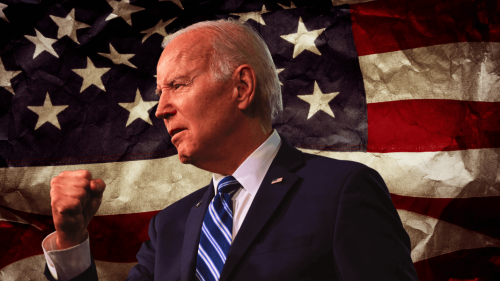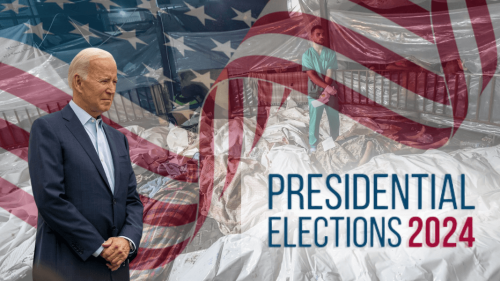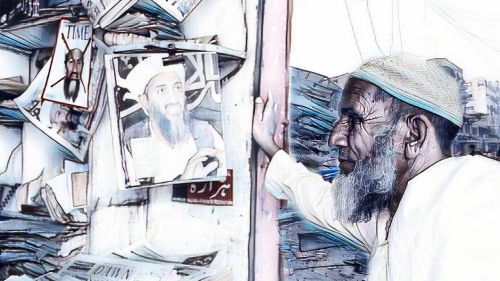Bin Laden's war against the U.S. economy
 |
Did Osama bin Laden win? No. Did he succeed? Well, America is still standing, and he isn't. So why, when I called Daveed Gartenstein-Ross, a counterterrorism expert who specializes in al-Qaeda, did he tell me that "bin Laden has been enormously successful"? There's no caliphate. There's no sweeping sharia law. Didn't we win this one in a clean knockout?
Apparently not. Bin Laden, according to Gartenstein-Ross, had a strategy that we never bothered to understand, and thus that we never bothered to defend against. What he really wanted to do - and, more to the point, what he thought he could do - was bankrupt the United States of America. After all, he'd done the bankrupt-a-superpower thing before. And though it didn't quite work out this time, it worked a lot better than most of us, in this exultant moment, are willing to admit.
Bin Laden's transition from scion of a wealthy family to terrorist mastermind came in the 1980s, when the Soviet Union was trying to conquer Afghanistan. Bin Laden was part of the resistance, and the resistance was successful - not only in repelling the Soviet invasion, but in contributing to the communist super-state's collapse a few years later. "We, alongside the mujaheddin, bled Russia for 10 years, until it went bankrupt," he later explained.
The campaign taught bin Laden a lot. For one thing, superpowers fall because their economies crumble, not because they're beaten on the battlefield. For another, superpowers are so allergic to losing that they'll bankrupt themselves trying to conquer a mass of rocks and sand. This was bin Laden's plan for the United States, too.
"He has compared the United States to the Soviet Union on numerous occasions - and these comparisons have been explicitly economic," Gartenstein-Ross argues in a Foreign Policy article. "For example, in October 2004 bin Laden said that just as the Arab fighters and Afghan mujaheddin had destroyed Russia economically, al Qaeda was now doing the same to the United States, 'continuing this policy in bleeding America to the point of bankruptcy.' "
For bin Laden, in other words, success was not to be measured in body counts. It was to be measured in deficits, in borrowing costs, in investments we weren't able to make in our country's continued economic strength. And by those measures, bin Laden landed a lot of blows.
Nobel laureate Joseph Stiglitz estimates that the price tag on the Iraq War alone will surpass $3 trillion. Afghanistan likely amounts to another trillion or two. Add in the build-up in homeland security spending since 9/11 and you're looking at yet another trillion. And don't forget the indirect costs of all this turmoil: The Federal Reserve, worried about a fear-induced recession, slashed interest rates after the attack on the World Trade Center, and then kept them low to combat skyrocketing oil prices, a byproduct of the war in Iraq. That decade of loose monetary policy may well have contributed to the credit bubble that crashed the economy in 2007 and 2008.
Then there's the post-9/11 slowdown in the economy, the time wasted in airports, the foregone returns on investments we didn't make, the rise in oil prices as a result of the Iraq War, the cost of rebuilding Ground Zero, health care for the first responders and much, much more.
But it isn't quite right to say bin Laden cost us all that money. We decided to spend more than a trillion dollars on homeland security measures to prevent another attack. We decided to invade Iraq as part of a grand, post-9/11 strategy of Middle Eastern transformation. We decided to pass hundreds of billions of dollars in unpaid-for tax cuts and add an unpaid-for prescription drug benefit in Medicare while we were involved in two wars. And now, partially though not entirely because of these actions, we are deep in debt. Bin Laden didn't - couldn't - bankrupt us. He could only provoke us into bankrupting ourselves. And he came pretty close.
It's a smart play against a superpower. We didn't need to respond to 9/11 by trying to reshape the entire Middle East, but we're a superpower, and we think on that scale. We didn't need to respond to failed attempts to smuggle bombs onto airplanes through shoes and shampoo bottles by screening all footwear and banning large shampoo bottles, but we're a superpower, and our tolerance for risk is extremely low. His greatest achievement was getting our psychology at least somewhat right.
In the end, of course, bin Laden was just another bag of meat and bones, hiding in a walled compound in Pakistan, so deeply afraid of death that he tried to use his wife as a shield when the special forces came for him. But he understood the mind of the superpower well enough to use our capabilities against us. He may not have won, but he did succeed, at least partially.
But then, we can learn from our mistakes. He can't.
*****
Ezra Klein writes an opinionated blog on economic policy, collapsing banks, cap and trade, health care reform and pretty much anything else you can attach a chart to. His blog points to the hottest policy ideas on the Web and provides his own up-to-the-minute take. Before coming to The Post, he was an associate editor at the American Prospect. Klein has appeared as a guest on CNN, MSNBC, NPR and C-SPAN and lots of online radio shows you've never heard of.
Source: Washington Post
Topics: Osama Bin Laden, United States Of America Channel: Opinion
Views: 4677
Related Suggestions





























